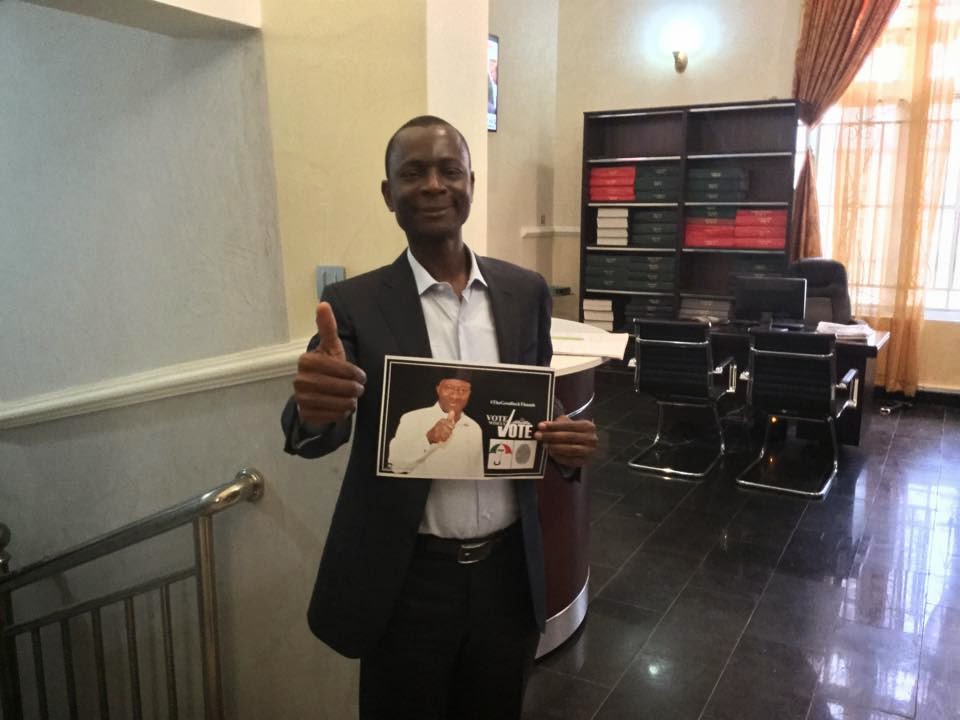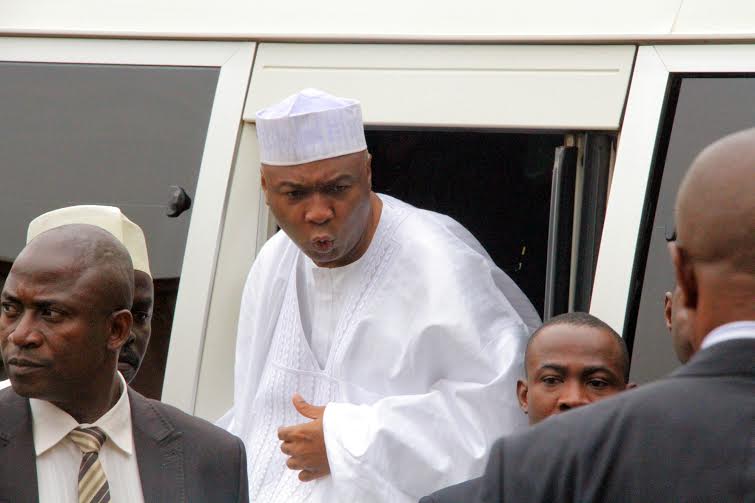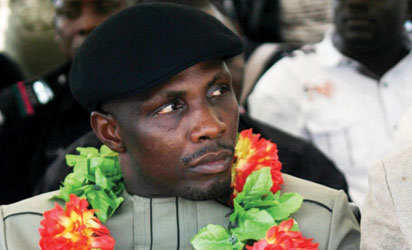By Haroun Baiyewu
On April 23, 2016, a magistrate court sitting in Lagos granted the Economic and Financial Crimes Commission (EFCC)’s application to remand Azibaola Robert in its detention centre ‘pending completion of its investigation’ into an alleged fraud in a $40m contract involving OnePlus Nigeria Ltd, one of his companies.
And so, with a stroke of the pen, B.O Osunsanmi, the chief magistrate, signed away the freedom of a Nigerian citizen. The question is for how long it would take the EFCC to complete its investigation.
The upshot is that, weeks after this ruling, Roberts is still cooling his heels in detention alongside tens of other Nigerians snared in the EFCC’s expanding holding centres.
It is now almost two months that this businessman was picked up by agents of the EFCC – and the anti-corruption agency has done everything in the book to ensure it does not release him. It has blatantly refused to obey all court orders that Roberts be freed within the first month of his incarceration.
Advertisement
When the EFCC got tired of ‘interference’ by the courts in Abuja, it transferred Roberts to Lagos, where a compliant judge gave it the legal authority to hold the detainee seemingly indefinitely.
Not many Nigerians oppose the federal government’s anti-corruption fight – for the evidence of rapacious mismanagement of Nigeria’s resources is all around us: bad roads, bad schools and bad hospitals – and an army of unemployed youth. But critics of the EFCC’s present handling of its job often point to its ‘bareknuckle’ approach to investigation of its cases.
Roberts would be a perfect example of this. His businesses, consisting of OnePlus, a security firm; and Kakatar CE Ltd, a construction firm, were one of those flagged when the APC took over power at the federal level.
Advertisement
Partly this was due to a probe into companies that had dealings with the office of the National Security Adviser under the last administration. But the overriding reason, as is now becoming clear, is that Roberts hails from the same village in Bayelsa State as Goodluck Jonathan and is, indeed, a cousin of the former president.
I had spent some time with Roberts at Kakatar’s Abuja workshop sometime last December, during which the unassuming man was initially unrecognizable from his staff as they all worked on fabrication of giant steel girders.
He spoke confidently to be the first that will build a truly Nigerian car, with only the electronic parts to be brought in from Japan. Speaking with passion on the ability of the youth of Nigeria to remake their country, he appeared to be a man on a mission to redefine the Nigerian story.
Apparently, he had been under the spotlight of the EFCC even then and had gone through his accounts with agents of the commission several times. Always welcoming and open about his business dealings with government.
Advertisement
Matters came to a head on March 21, 2016 when the EFCC stormed Kakatar’s office and took away a senior finance staff. The same day, EFCC agents invaded the residence of Roberts at about 8pm, demanding that his wife make herself available for arrest even though there was no formal invitation to either the husband or the wife to appear before the commission.
On March 23, the couple honoured the EFCC’s invitation. Since then, he has been in EFCC’s detention without any formal arraignment against him. The accounts of Robert’s firms were also frozen, putting the staff in a state of financial uncertainty; this is even as one them, Kakatar is not under probe and is currently executing projects on behalf of the federal government of Nigeria.
The commission, in its legal representation to secure the power to keep Roberts in detention, claims it was investigating how OnePlus secured and executed the $40m pipeline monitoring and protection contract it executed in 2014.
It is interesting, but possibly not peculiar that the EFCC is interrogating the authority of the NSA to award the contract and certify that the contractor has carried out its job to its satisfaction. But revelations about goings-on at the office of the NSA mean the EFCC is right to be skeptical about some of the jobs handled by that agency of government.
Advertisement
The problem is in how it is going about this. Surely six months is enough time to probe a contract and, if insufficient, how can the continued incarceration of a suspect help in doing this?
Perhaps the agency thinks torture, psychological or otherwise, would make its detainees crack enough to own up to what it could not find in the books?
Advertisement
Corruption has many facets and subversion of court orders is one of them. It is possible that the EFCC is motivated by altruistic reasons beyond what some supporters of Roberts say is a desire to punish him for being a relative of the former president.
It is also possible that the probe of his businesses is a start, before the EFCC move to other companies that some say include Julius Berger and others that did jobs for the NSA. But none of these have had their accounts frozen and their directors locked up.
Advertisement
Before he became a businessman, many of us knew Robert as an environmental activist and leader of the Niger Delta reawakening of the 90s. He used his legal background to peacefully fight for the respect for the rights of the Ogoni, the Ijaw and other peoples of the Niger Delta. A believer in a united and prosperous Nigeria, he did not tow the path of militancy. It is not too much to expect that he would enjoy the protection of the law due a Nigerian citizen.
Justice must not only be done; it must be seen to be done. The EFCC hurts its brand by not following the law, or cherry-picking which laws to follow, in its activities. Ultimately, the law is the only succour for the presently powerful and the presently weak. We should not debase it for anything.
Advertisement
Baiyewu is a Lagos-based public policy analyst
Views expressed by contributors are strictly personal and not of TheCable.
Add a comment






